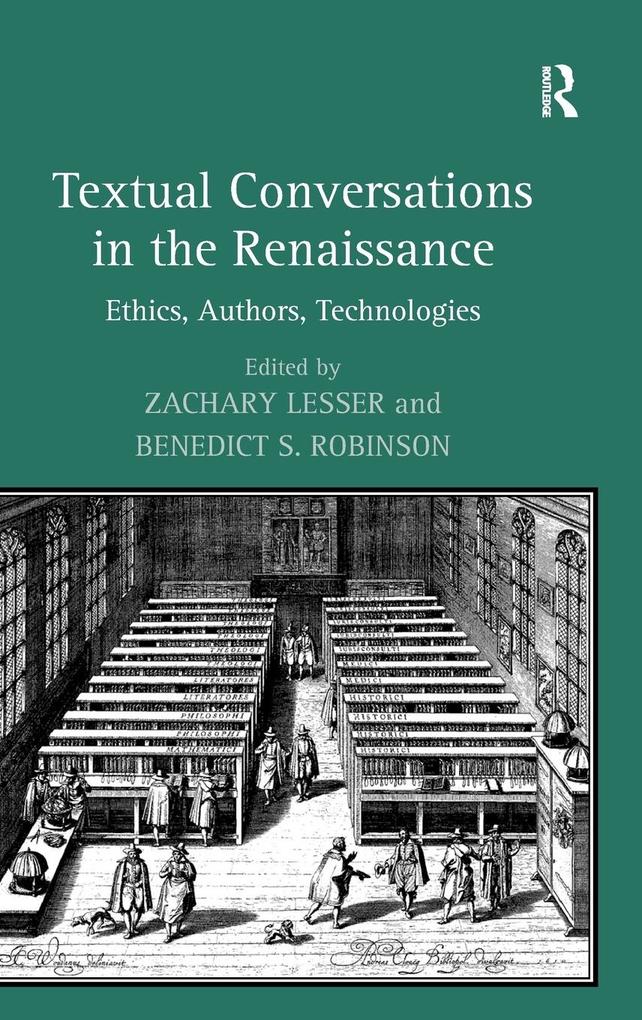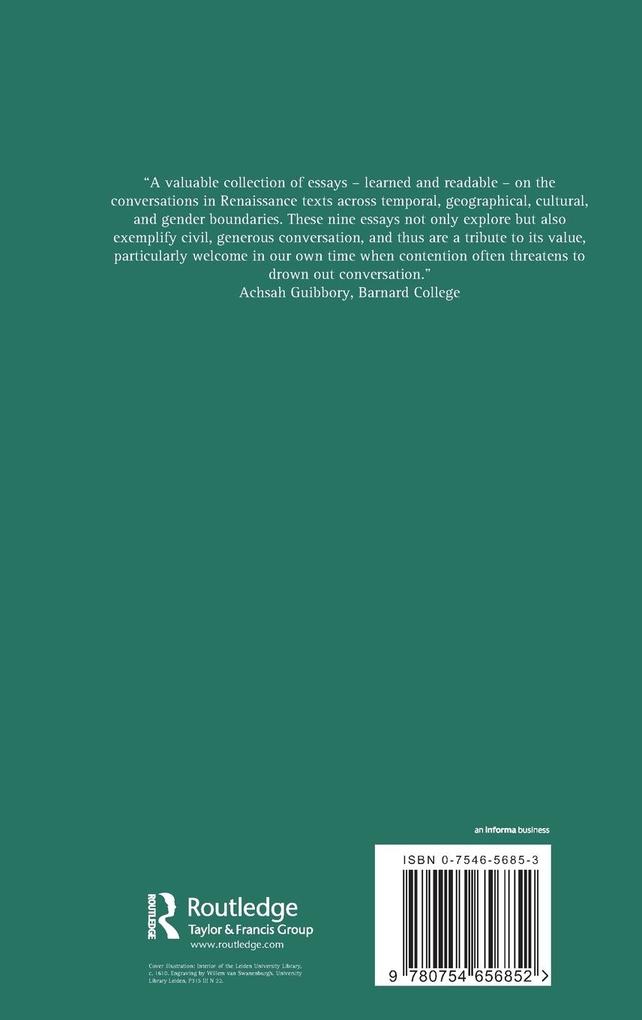
Zustellung: Sa, 26.07. - Mi, 30.07.
Versand in 7 Tagen
VersandkostenfreiBestellen & in Filiale abholen:
A group of leading scholars here investigate the varied ways in which the Renaissance incorporated conversation and dialogue into its literary, political, juridical, religious, and social practices. Across a range of texts and genres, the essays focus on the importance of conversation to early modern understandings of ethics; on literary history itself as an ongoing authorial conversation; and on the material and textual technologies that enabled early modern conversations.
Inhaltsverzeichnis
Contents: Preface; Introduction, Zachary Lesser and Benedict S. Robinson. Part 1 Conversational Ethics: The art of Conversazioni: practices in Renaissance rhetoric, Arthur F. Kinney; 'Defend his freedom 'gainst a monarchy': Marlowe's republican authorship, Patrick Cheney; 'Much more the better for being a little bad,' or gaining by relaxing: equity and paradox in Measure for Measure, Peter G. Platt. Part 2 Authors in Conversation: Allegory, irony, despair: Chaucer's Pardoner's and Franklin's Tales and Spenser's Faerie Queene, Books I and III, Judith H. Anderson; 'Les langues des hommes sont pleines de tromperies': Shakespeare, French poetry, and alien tongues, William J. Kennedy; Joining the conversation: David, Astrophil, and the Countess of Pembroke, Margaret P. Hannay. Part 3 Technologies of Conversation: The puzzling letters of Sister Elizabeth Sa[u]nder[s], Betty S. Travitsky; A civil conversation: letters and the edge of form, Roger Kuin; 'Made all of rusty yron, ranckling sore': The imprint of paternity in The Faerie Queene, Douglas A. Brooks. Bibliography; Index.
Produktdetails
Erscheinungsdatum
28. Oktober 2006
Sprache
englisch
Seitenanzahl
242
Autor/Autorin
Benedict S. Robinson
Herausgegeben von
Zachary Lesser
Verlag/Hersteller
Produktart
gebunden
Gewicht
531 g
Größe (L/B/H)
240/161/18 mm
ISBN
9780754656852
Entdecken Sie mehr
Bewertungen
0 Bewertungen
Es wurden noch keine Bewertungen abgegeben. Schreiben Sie die erste Bewertung zu "Textual Conversations in the Renaissance" und helfen Sie damit anderen bei der Kaufentscheidung.










